If you’re into gardening, you know how much birds thoroughly enjoy wreaking havoc when the world begins to thaw.
It is the season when root vegetables sprout and explore the cold spring grounds after all. In particular, it’s the dark red colors of the ones that attract our feathered friends the most.
Of course, it’s none other than beetroots!
Birds are creatures of impeccable versatility, yet they have a knack for loving foods that are redeemed unsafe for them, similar to others we know (us humans).
Are beets a part of that list? Can birds eat beetroots?
Birds can certainly relish the sweet and earthy flavor of beets. Not only do these vibrant red veggies taste delightful, but they are also packed with vitamins, minerals, and fiber – aiding in a healthy digestive system for our feathered friends.
However, pet and rescue birds aren’t exposed to all the elements of nature like wild ones.
Since birds are vibrant members of the animal kingdom, they are more prone to diseases due to missing out on more digestive enzymes than others.
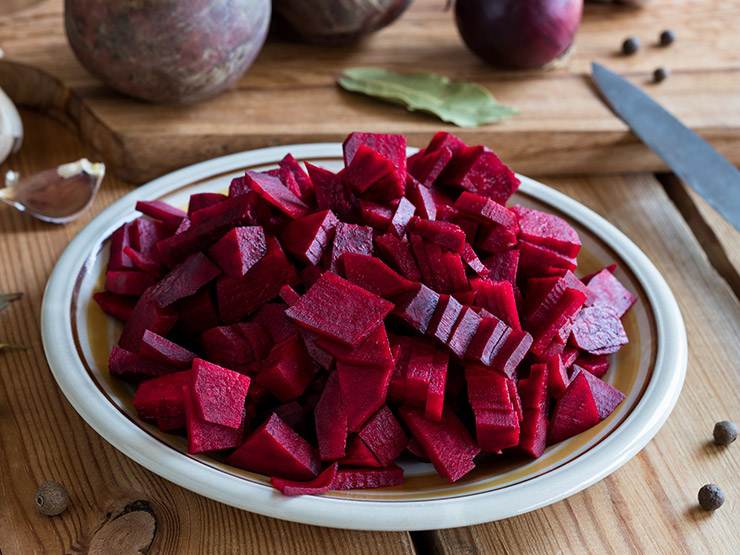
If you remember our article, can birds eat spinach?, you’ll know the slight disadvantage of spinach being an addition to a bird’s diet. Does beetroot have something of a similar effect?
Let’s find out!
Are Beetroots Safe for Birds?
As mentioned earlier, birds require proximity of evaluation before getting introduced to new foods. It reasons that foods, even natural ones, have severe health repercussions.
If you’re anything like me, I’m sure you strive to provide only the best and safest for our beloved Avians.
Thus, it delights me greatly to let you know that not only are beets safe for birds to consume, but they are also highly beneficial.
A vibrant winter vegetable that satiates your birdie’s appetite while delivering essential nutrients? What more can a bird parent want?
Hence, without further ado, let’s explore the plethora of benefits beetroot offers.
What Are the Benefits of Beetroots?
When I think of beetroots, they remind me of these rubies chock-full of iron exploring mother earth as soon as winter defrosts.
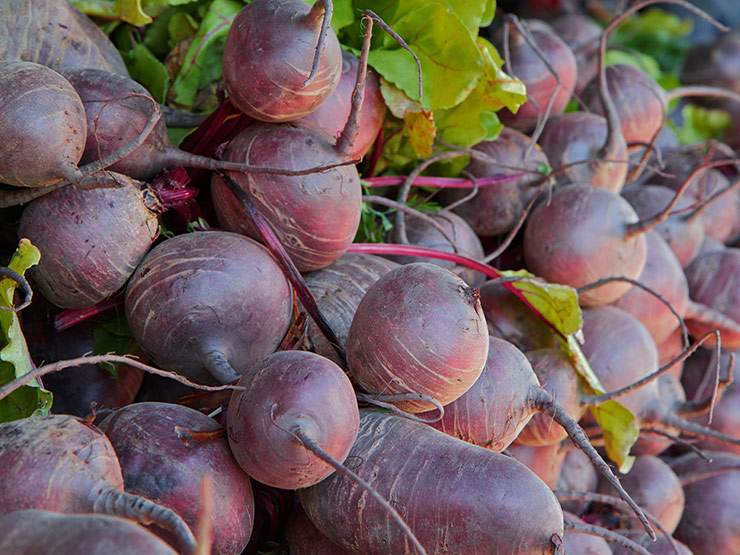
As bird parents, we’ll always look for natural foods that provide the perfect balance of nutrients while remaining utterly delicious.
Let’s find out if beets deliver just that.
Iron: Why not start with the one that made beets famous?
Birds are opportunistic omnivores. Meaning they consume red meat as well. Why not have those requirements be met by a vegetable instead?
Only a hundred grams of beets contain 0.8mg of iron which fulfills almost the entire daily intake of iron (1.3mg) required in a bird’s diet.
Want the perfect cure for anemia for your bird? Now you know the fix.
Folic Acid (Vitamin B9): The deficiency of folate in birds is a rising cause of egg-binding. Infertility in birds is drastically driving species to extinction.
If you’re passionate about wild birds, don’t forget to add beets to your bird feeders during mating season (adding beets will be discussed briefly).
Why beets? Beets contain up to 109 mcg of folic acid per 100 gm servings, making them one of the foods with the highest folate content.
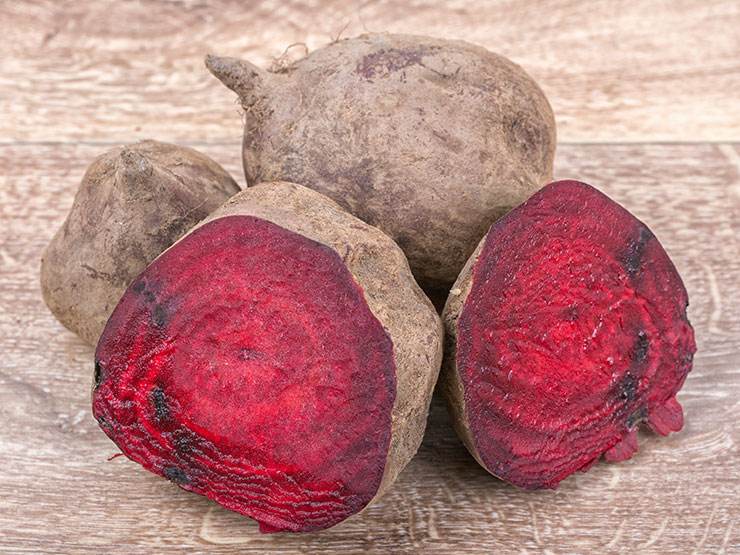
Calcium: One of the crucial parts a bird parent struggles with is finding foods that will suffice their calcium intake. Considering birds are lactose intolerant, this becomes incredibly hard.
It’s a real bummer when you can’t share your ice cream with your feathered companions. Did you know that one of the best foods for increasing calcium intake was in your pantry the whole time?
Beets are an impeccable source of calcium that will bump your bird’s intake to their daily need better than any other health supplement.
They contain 26 mcg per 100-gram serving, which meets 25% of their daily intake.
Carbs: We know the special bond formed from feeding wild birds bread in parks.
Yet if you’re an avid bird enthusiast, you’ll learn how bread provides no nutritional content and instead fills them up with empty calories.
Then… What Are Good Carbs?
Good carbs are a source of energy that provide beneficial nutrients as well. Beetroots deliver just that.
With a low Glycaemic Index, beets offer all the other vital nutrients without spiking the LDL-cholesterol levels, as they contain only 8-10% carbs.
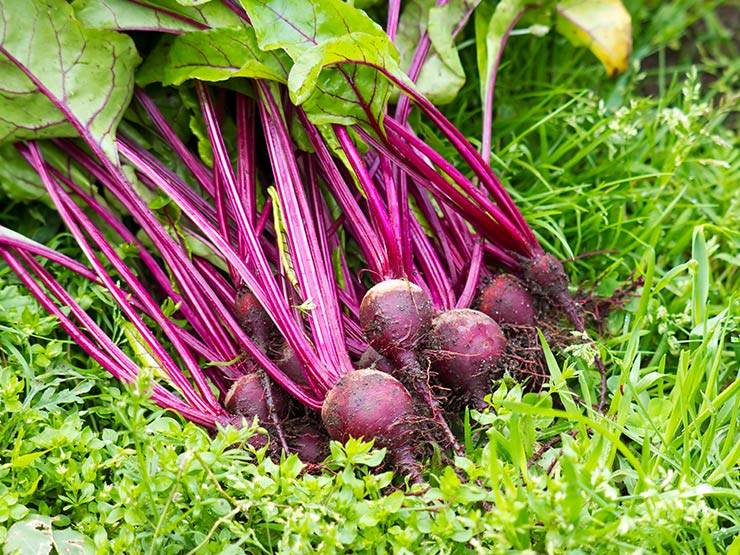
Manganese: It makes beets a great addition to your bird’s diet, especially if they are recovering from injuries or diseases.
Manganese promotes healthy tissue and bone growth, making it an essential micronutrient.
Potassium: A rich potassium diet is vital if your bird suffers from high cholesterol and cardiovascular diseases.
Beetroots are the perfect source of potassium if your bird doesn’t enjoy bananas (which is bananas, of course!).
Fiber: If a root vegetable isn’t enriched with fiber, what’s the point of consuming them?
Beets are hyped up not only for their micronutrient content; but also for their macronutrients.
Birds require a high-fiber diet to regulate their gut health and prevent digestive diseases. Beets will help your birds achieve just that.
With all said, the many benefits will surely convince you to add beetroots to your bird’s diet. Read on to find out how to do so!
How to Add Beets to Your Bird’s Diet?
Although birds are versatile creatures, young ones may be tentative towards trying new foods in their diet. What can you do to avoid this?
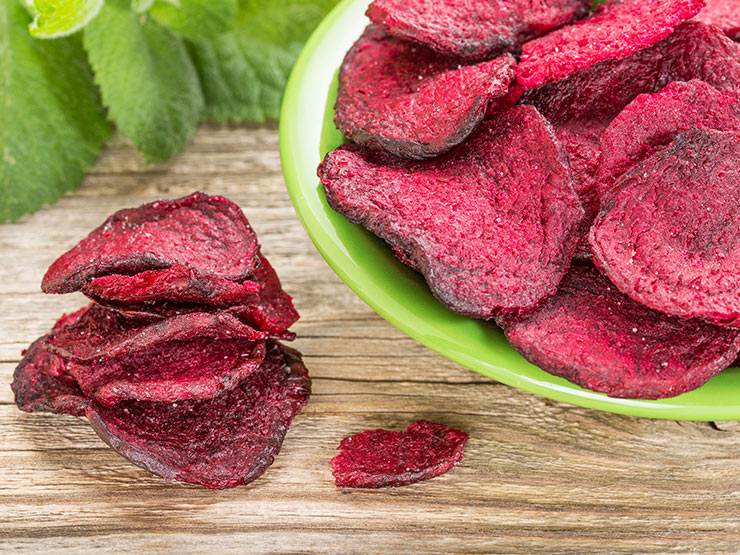
Here’s what:
Birds are similar to toddlers as they can’t distinguish new foods if added to their favorites.
Offering beetroots in a chop or seed mix is the best way to disguise them. The ruby red beets hidden in the vibrant colors of a chop won’t make your bird question its taste once.
Try to entice and attract your bird towards beets just by letting it watch you eat them. They’re attracted to whatever their parents consume on a day-to-day basis. It’s a win-win situation.
As for wild birds, the adult ones will chow down on whatever you offer them, and the younglings will soon follow suit.
Let’s move on to the safest ways to add beetroot to their diets.
What Are the Safest Ways to Serve Beetroot to Birds?
Most natural foods contain moisture that instantly incubates infectious microbes. The same goes for beets.
Leaving stale beets in the bird feeder allows those microbes in your bird’s system to cause terminal illnesses. How to prevent this? Let’s find out.
- Serving beets raw is discouraged due to the obvious reasons listed above, yet, giving them an occasional treat or two is always welcome.
- Boiling or cooking your beets is another option that isn’t the best due to reasons we’ll discuss briefly.
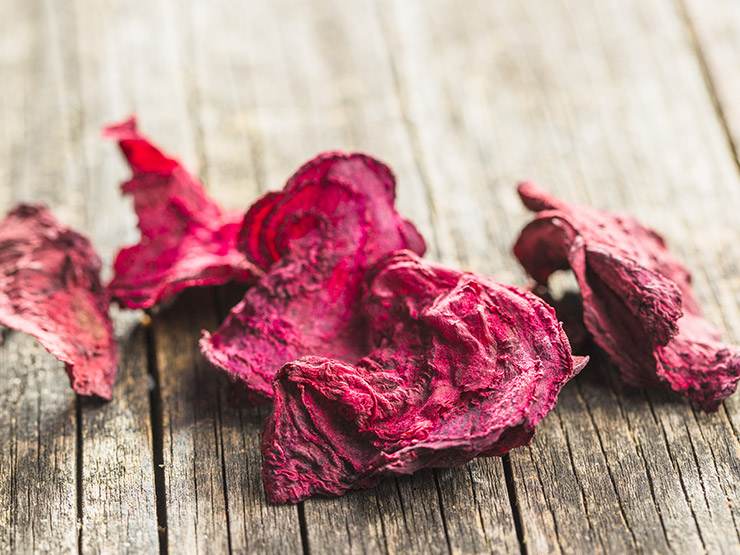
Then, what remains?
- Baking is the easiest route to opt for if you’re making them in bulk. It’s convenient as only an oven is required. Toss the beets in, and you’re good to go.
However, my favorite is dehydrating fruits and vegetables. Dehydrating beets removes any moisture and increases their shelf-life. Trust me when I say investing in a dehydrator will give you a bang for your buck.
To find out why cooking is a disadvantage, read the next section.
What Are the Downsides of Beets?
If you’ve worked with beets before, you know how messy they can be. Imagine your bird grabbing hold of one (yikes!).
Cooking beets do not draw any moisture out of them; instead, add onto them. Before you know it, your entire room will scream bloody murder.
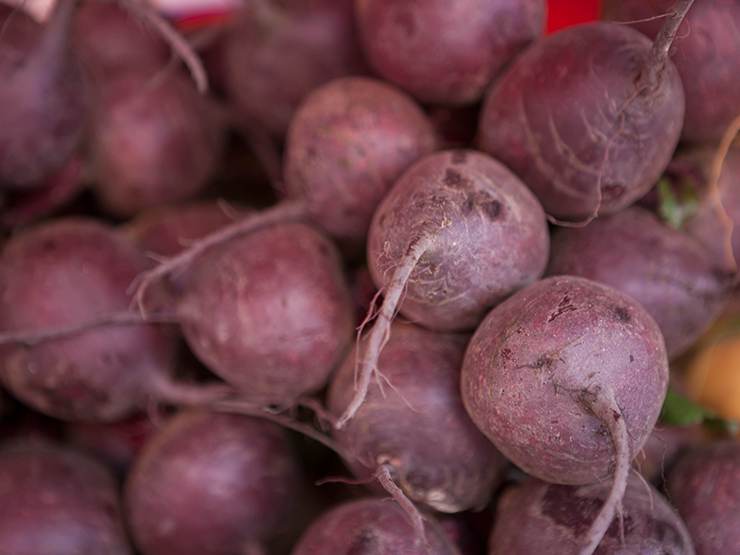
The messiness and clumsiness that comes with beets are the only disadvantages. Opting for dehydrated ones is the way to go.
Another sad part of beets is their unavailability due to being seasonal vegetables, which is why dehydrating them is my favorite. Dehydrating them maximizes their shelf-life so birds can enjoy them all year round.
Let’s move on to the part we’ve all been waiting for.
How to Stop Birds From Ruining Your Beet’s Garden?
Wild birds are notorious for ruining beet crops during the fall and late winter. Thus, how can you prevent it?
Birds enjoy all parts of beetroot, including the sprouts as well. Covering your garden bed is essential to keep birds out of reach.
Another way to avoid having birds ruin your garden is to just set up a bird feeder for them. What can be more significant than bonding with birds while keeping your crops safe? Right?
Frequently Asked Questions
Here I’ve answered the FAQs about feeding beets to birds.
Can Birds Eat Raw Beets?
Beets are naturally occurring food that is chock-full of nutrients. Cooked or not, birds can enjoy them either way.
Raw beets provide the full nutritional content, whereas cooking them can reduce some.
Can Birds Eat Cooked Beets?
Cooking beets can drain some of the nutrients. However, it solely depends on the method of cooking.
Steamed beets retain their nutritional content but also their structural integrity. It’s convenient as well.
Baking and dehydrating them is the most convenient in my books.
Can Birds Eat Pickled Beets?
Pickled beets are no longer natural as they get pickled in vinegar.
Pickled beets are to please the palates, meaning they contain high concentrations of preservatives and sodium chloride, which are severely toxic to birds.
Can Birds Eat Beet Leaves?
Birds can eat beet leaves as long as the leaves are young. Old and aged beetroot leaves can have a leathery texture which is unpleasant to birds. Apart from that, beetroot leaves are beneficial for birds.
Can Birds Eat Beetroot Seedlings?
Birds often snack on beetroot seedlings during harvest season. Who wouldn’t love a nutritional and yummy snack on the go?
Birds can eat all parts of beetroot and enjoy the nutritional benefits.
Can Wild Birds Eat Beetroots?
Wild birds enjoy beetroots more than you think.
One of the persistent pests during harvest season for beet farmers are birds like sparrows who enjoy snacking on beet seedlings.
Beetroots are a prominent way for wild birds to boost their immunity.
Final Remarks
To conclude, the question: Can birds eat beets?
Yes! They enjoy beets, and why won’t they? It’s a perfect calcium and folate supplement to their diet while being scrumptious.
Don’t forget to try it out for your pet if you haven’t already!
What I would like to also know about beets and birds is,is it okay to give them powdered beets made by Humann
Because I buy that product for myself and I have it on hand
Hi Carl,
Thanks for your question.
Store-bought powdered beets can be harmful to birds due to additives, preservatives, and seasonings. However, homemade powder made from fresh, dried beets can be offered in moderation.
It is best to provide birds with fresh, additive-free raw or cooked beets. Please consult your vet before making any changes to your bird’s diet.
Best,
David